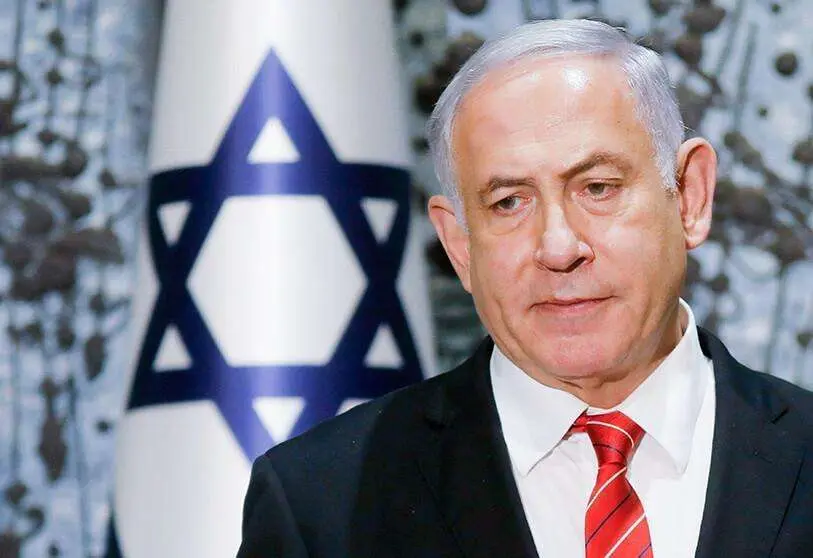Eight daggers for stabbing Netanyahu

Up to eight parties have been necessary to form a Frankenstein coalition to oust Prime Minister and Likud leader Benjamin Netanyahu from power. Eight daggers in all to deliver the definitive political stabs that will put an end to his long political career, the longest as head of government since the creation of the State of Israel in 1948.
Yair Lapid, the promoter of the agreement, hurried until the last minute to inform President Reuven Rivlin that he had managed to put the puzzle together, the same one that Netanyahu had to give up four consecutive times. The process is not yet complete, as the head of state has to give him one more week to finalise the positions and the government programme before submitting it to the Knesset, which will have the last word with a final vote. The 61 votes Lapid claims to have secured - a very slim majority out of the 120 seats in the Israeli parliament - will therefore have to be made official in that vote. In the week ahead, it cannot be ruled out at all that Netanyahu and his supporters will try to make some of the more conservative MPs back down. If this were to happen, in addition to demonstrating that nothing in Israel should be taken for granted, it would pave the way for a fifth round of elections. In that scenario, Netanyahu would have to remain the undisputed leader of Likud, which would not be so clear this time around. Some voices in the conservative party are calling for a renewal of the leadership, so it would not be unlikely that Netanyahu would also be ousted by his own co-religionists.
For the moment, the winds of change are indeed blowing. Alongside Lapid, the coalition's strongman is Naphtali Bennett, leader of Yamina, the party furthest to the right in this motley coalition that spans almost the entire parliamentary spectrum: three more or less conservative parties - Yamina, New Hope and Israel Our House - two centre parties - Lapid's own Yesh Atid and former general Benny Gantz's Blue and White - two left-wing parties - Labour and Meretz - and the big newcomer, the Maan party, the first Arab party to be integrated into an Israeli government, and thus the representative of 20 per cent of Israel's Arab population.
From the intense negotiations to put together the coalition, the first consequence is that the head of government and the foreign ministry will rotate and alternate between Lapid and Bennett. It will be the latter, moreover, who will start the first two-year term. This solution will also be extended to the very strategic Judicial Affairs Committee, whose presidency is being disputed between two women: Bennett's own deputy, Ayelet Shaked, and the head of the historic but much diminished Labour Party, Merav Michaeli. Both will rotate and alternate after two years in a body in charge of judicial appointments, not a minor issue, both because Prime Minister Netanyahu's corruption trials are still pending and because of the numerous disputes that judges will have to resolve over land and house occupations.
The issue regarding ownership and the demolition of unlicensed buildings inhabited by Arabs is precisely one of the conditions imposed by Maan leader Mansur Abbas in order to bring in the necessary four MPs to the coalition. He also appears to have been promised an end to the campaign to evict Bedouins from the Negev desert in order to build new Jewish towns in their areas.
To reach this final agreement, two burning issues had to be excluded from the agenda: peace negotiations with the Palestinians and the role of the Jewish religion in the state, especially after Netanyahu's proclamation of Israel as a Jewish state with a single, indivisible capital in Jerusalem. In any case, these are issues that start with many faits accomplis and therefore in a position of strength in the face of future negotiations that might bring about something resembling a different solution to Arab-Israeli coexistence or cohabitation.
One way or another, if it is finally without Netanyahu, Israel is entering a new phase in its policy, following the closing of ranks in the latest offensive on Gaza in response to the barrage of rockets launched by Hamas against Israeli territory. And, as usual, change comes with a halo of hope.

